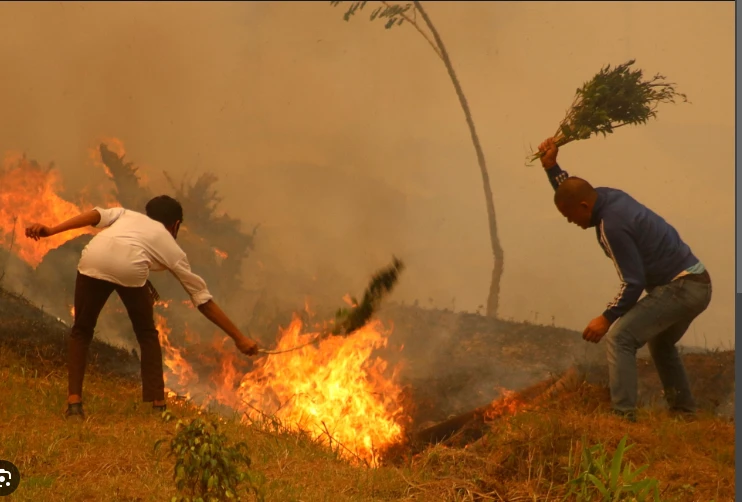Nepal battles raging wildfires across the country

Stay tuned with 24 News HD Android App

Firefighters and local residents battled a massive wildfire on the outskirts of Nepal's capital Thursday as the Himalayan republic endures a severe fire season authorities have blamed on a heatwave.
Nepal sees a spate of wildfires annually, usually beginning in March, but their number and intensity has worsened in recent years, with climate change leading to drier winters.
Emergency crews worked through the night to fight the blaze which engulfed a forested area in Lalitpur, on the southern periphery of the Kathmandu valley.
More than 4,500 wildfires have been reported this year across the country, nearly double compared to last year according to government data but less than the worst fire season on record in 2021.
"Wildfires have increased in an unimaginable ratio, and the season is expected to last for a month more," Sundar Prasad Sharma of the National Disaster Risk Reduction and Management Authority told AFP.
"It is challenging to put out fires because of our difficult terrain," he added.
Environment ministry spokesman Badri Raj Dhungana said the increase in the number of wildfires this year was because of a lengthy drought and heatwave conditions in Nepal's southern plains.
"Generally, wildfires peak late April but this year they are still increasing because of rising temperatures," he said.
Extensive scientific research has found climate change is causing heatwaves to become longer, more frequent and more intense.
Large swathes of South and Southeast Asia have sweltered through a heatwave since last month, with the El Nino phenomenon also driving this year's exceptionally warm weather.
Temperatures have risen above 40 degrees Celsius in the Buddhist pilgrimage city of Lumbini and other parts of the south, with more hot weather forecast in the days ahead.
More than a hundred schools in the southern city of Butwal were closed on Thursday for two days out of fears the heatwave would impact the health of students.
